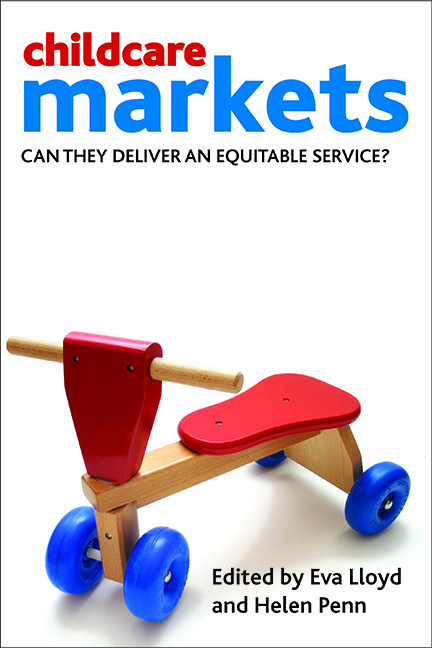twelve - ABC Learning and Australian early childhood education and care: a retrospective ethical audit of a radical experiment
Published online by Cambridge University Press: 01 September 2022
Summary
Introduction
This chapter unfolds in three parts. It commences with the cautionary narrative of ABC Learning, an Australian childcare corporation that became the world's largest for-profit childcare provider within a few years of its listing on the Australian Stock Exchange. It then revisits findings of an ethical audit (Sumsion, 2006) of ABC Learning’s operations from 2001–05 in light of subsequent developments. The chapter concludes with reflections on some of the many questions prompted by the rise and fall of ABC Learning.
Some familiarity with the Australian early childhood education and care (ECEC) context is needed to fully comprehend the enormity of the ABC Learning epic. In brief, as Brennan and Newberry (2010) outline, the Whitlam Labor Government, 1972–75, introduced supply-side funding for not-for-profit long-day care, that is full daycare and education for children aged from 6 weeks to 5 years of age. This initiative positioned childcare provision primarily as a public responsibility and led to a significant expansion of the not-for-profit community-based sector. In 1991, the Hawke–Keating Labor Government, 1983–96, extended government subsidies to private for-profit providers, thus legitimating childcare provision as a profit making undertaking. A market approach became entrenched under the Howard Liberal-National Coalition (Conservative) Government, 1996–2007. Supply-side funding was dismantled when operational subsidies for not-for-profit services were removed in 1997. In 2000, the Child Care Benefit, a demand-side subsidy to parents that flowed directly to the centre attended by their child was introduced. These policy levers increasingly positioned childcare as a private responsibility best provided through market forces. The attractions of a business model underpinned by a secure government-funded revenue stream led to the rapid expansion of for-profit provision and created market conditions conducive to the entry of corporate operators such as ABC Learning (Brennan and Newberry, 2010; Brennan, this volume).
ABC Learning: an epic narrative
The rise and fall of ABC Learning began, uneventfully enough, in 1988 in the Australian state of Queensland when the 22-year-old entrepreneur Eddy Groves and his wife, Le Neve, bought a licence to operate a childcare centre in suburban Brisbane. They expected that Queensland's rapidly growing population, fuelled in part by an influx of young, two-income families from other states who had little extended family support, would make childcare a ‘recession proof ‘ growth industry (Fraser, 2004).
- Type
- Chapter
- Information
- Childcare MarketsCan They Deliver an Equitable Service?, pp. 209 - 226Publisher: Bristol University PressPrint publication year: 2012
- 1
- Cited by

